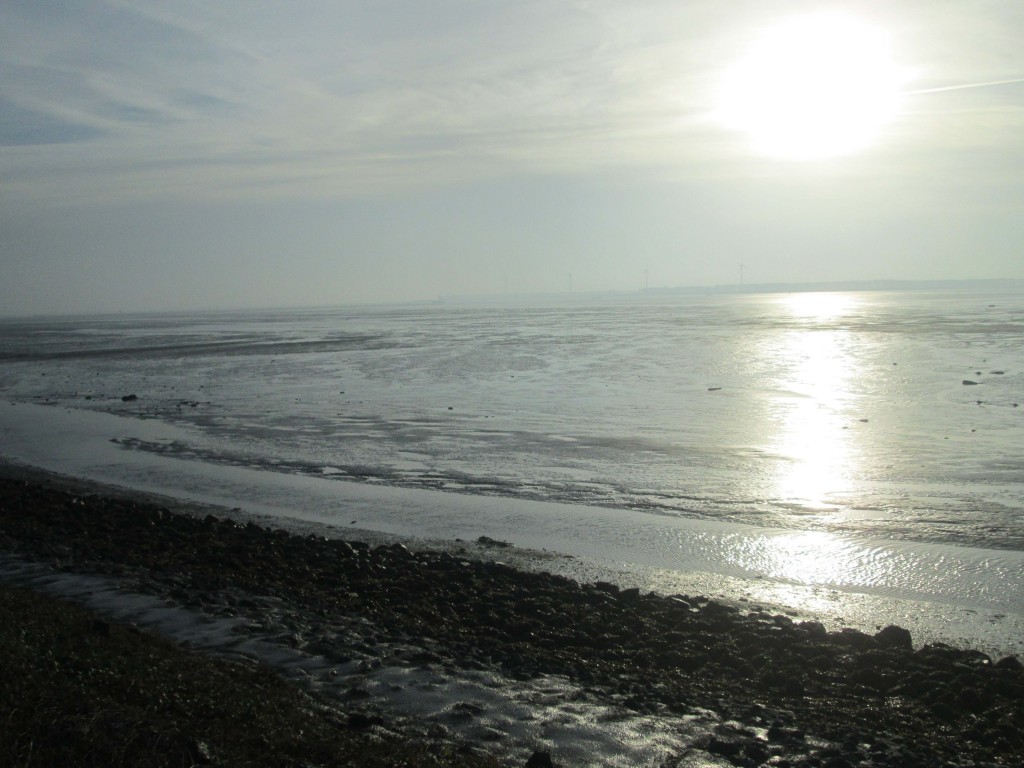When God created the world, He forgot Zeeland.
He made the continents, the oceans, the primeval forests end the polar caps, but to Zeeland He did never come.
On the Sixth Day the creation was finished, but the little spot in Northern Europe where Rhine and Maas flow into the sea did not even have its rudimentary form. Like an incomplete foetus it lay adjacent to the rest of this part of the world, it was neither land nor sea. It was an impassable, bare, swampy wasteland, where man and beast would sink in unto the end of times. A sprawled delta where the rivers regularly changed their course and the tide twice a day drew through the channels and trenches. There were no trees, no brushes, there was nowhere shade against the fierce sun in July and August, nowhere protection against the wind and the storms that in fall and winter incessantly raged over the plains from the West.
It was, in short, not His intention that you would go and live there.
(Rik Launspach, 1953, Amsterdam 2009, translated from the Dutch original)
This a poetic, almost biblical introduction to 1953, Dutchman Rik Launspach’s enthralling novel about the great Holland storm flood in 1953, not only presents the most striking feature of Zeeland’s identity: a region between land and sea, constantly changing, constantly in danger of being reclaimed by the sea. Launspach’s epic introduction also presents a basic problem that an increasing number of coastal regions have to face: “God did not mean Man to dwell there.”
Humans have always dwelled on the coasts of the world – not least, since the sea provides us with so many goods and has become home and supplier to millions and millions of people in the history of mankind. But in all the years of human existence, Man has also had to recede from the shores.
What happens to the many coastal regions on our earth that not only are exposed to storms and regular flooding, but that also will suffer severely from sea level rise? What have been the solutions to this dilemma in former times – and which solutions does our ever extending knowledge about geology, meteorology, and technology offer us now? Which countries will be hit hardest, and what can we – as human fellowship – do to relieve the people living there?
God – or Nature – has not meant Man to live in certain endangered coastal regions. And yet, many of these regions have become home to human life, to culture and to history. Is receding and giving them up the only way?
How do we meet this challenge, which becomes more and more urgent with the undeniable effects of the climate change?
Have a good and productive year 2014.
Linda Maria Koldau
Original text:
(from: Rik Launspach, 1953, Amsterdam: Den bezige bij, 2013, p. 11)
Toen God de wereld schiep, vergat Hij Zeeland.
Hij maakte de continenten, de oceanen, de oerwouden en de poolkappen, maar aan Zeeland kwam hij niet toe.
Op de zesde dag as de schepping klaar, maar de plek in Noord-Europa waar Rijn en Maas in zee uitkwamen, had nog niet eens een rudimentaire vorm. Als een onvolgroiede foetus lag het tegen de rest van het werelddeel aan, het was geen land, maar ook geen zee. Het was een onbegaanbare, kale moeraswoestenij, waar mens en dier tot het einde der tijden diep in de modder zouden wegzakken. Een uitgestrekte delta waar de rivieren regelmatig hun loop verlegden en het tij twee keer per dag de zee door geulen en slenken trok. Er waren geen bomen, geen struiken, er was nergens schaduw voor de felle zon in juli en augustus, nergens beschutting voor de wind en de stormen die in de herfst en winter onafgebroken uit het westen over de vlakte raasden.
Het was, kortom, niet Zijn bedoeling dat je er ging wonen.

Great blog! Not so disconcerting to the Dutch, of course. You know what they say. When God attempted to create an earth he pretty much botched the job, but when the Dutch created the Netherlands they managed to do what their Predecessor was unable to achieve, probably because they made a point of not trying to get results within seven days.
Looking forward to the next installment.
…and lo, the reputation of Dutch “creativity” spread over the world: Their expertise in keeping out the sea was asked for not only in 17th-century Germany, but also in post-Katrina USA. Hope you will support us in meeting the climate change! 🙂
Anyway, I will write a short report about the conference “Delta Cities Battling with Climate Change” that takes place at the Watersnoodmuzeum in Zeeland at the end of January.